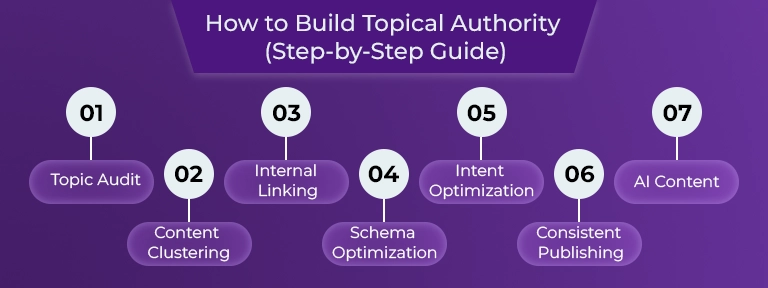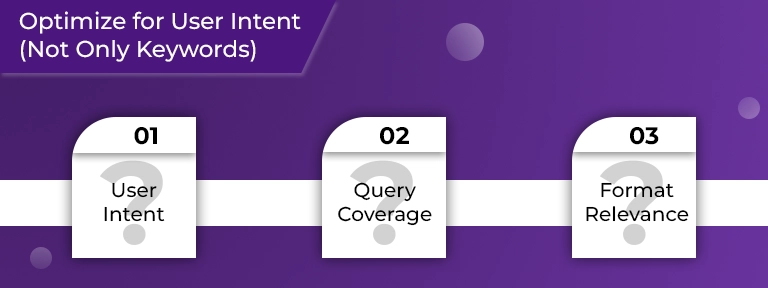Topical Authority
Topical Authority: The SEO Strategy You Can’t Ignore in 2025
If you are fully serious about ruling your chosen niche on a search engine like Google, you just have to understand one main concept, which is Topical Authority. It’s no longer only related to stuffing blogs with focused keywords or chasing some random backlinks. Google’s changing algorithms now reward websites that show complete, reliable knowledge across a specific area.
But what is Topical Authority? Why does it really matter so much in the era of modern AI, and how can you develop it to future-proof your SEO strategy?
In this blog, we’ll simply break down everything you wish to know related to building Topical Authority, how it shows its impact on search rankings, and how different tools like ChatGPT, smart internal linking, and advanced hosting, such as GPU4HOST, can boost your journey to becoming a well-known authority in your niche.
What Is Topical Authority?
Topical authority is your site’s perceived proficiency on a particular subject or category. It’s how search engines check whether your content offers comprehensive, reliable coverage of a specific topic.
For instance, a tech website that publishes a lot of well-linked, detailed articles on AI GPUs, a GPU server, and Nvidia A100 technology would get topical authority in the AI hardware space.
Both Google’s helpful content system and user intent algorithms go for content that provides value, details, and precision, not only surface-level information. The more engaging content you have around a single theme (organized with the help of different strategies such as internal links, content clusters, and anchor text), the more search engines trust your skills.
Why Topical Authority Matters More Than Ever
Here’s why emphasizing Topical Authority can excessively improve your online presence:
- Good rankings for both short- and long-term keywords
- Improved alignment along with Google’s E-E-A-T strategy (Experience, Expertise, Authoritativeness, Trustworthiness)
- Enhanced Domain Rating and high-quality organic traffic
- Gain trust from all users and industry enthusiasts
Think of it in another way: Google wishes to serve users the right answers. If your website shows thorough expertise, supports that simply with citations, and convinces user intent, you’ll be rewarded with improved online visibility and more lead conversions.
How to Build Topical Authority (Step-by-Step Guide)

Here are the most productive steps to develop Topical Authority and grow your website’s online visibility and credibility:
1. Begin with a Topic Audit
Before you develop anything, perform a content audit to find:
- Your previous authority segments
- Gaps in content coverage
- Duplicate or former content
Utilize tools such as Ahrefs or SEMrush to check out your quality backlinks, target keywords, and internal pages. Identify what demands updating and which clusters require expansion.
2. Build Content Clusters Around Main Topics
This is the core of topical authority. A content cluster includes:
- A pillar page: huge coverage of the important topic
- Cluster pages: dedicated, supporting content connected to the pillar
For instance, a pillar page on a GPU dedicated server could be simply supported by cluster content such as:
- “Advantages of GPU Hosting for AI Businesses”
- “What Is a GPU Cluster? Describe for Gamers”
- “How the Nvidia A100 Transformed AI Image Generation”
Every one of these cluster posts should connect back to the pillar with the help of optimized anchor text and internal links.
3. Utilize Internal Linking Strategically
Internal linking signals the topic relating to search engines and allocates page authority throughout your website. But it’s not only related to quantity—it’s all about strategy.
Here’s how to do it perfectly:
- Utilize descriptive, keyword-rich anchor text.
- Keep all links contextual and appropriate.
- Prevent overstuffing links within content.
- Link from previous high-traffic posts to newer related ones.
Tools such as Rebrandly or even ChatGPT’s plugin ecosystem can help you easily automate smart linking tactics.
4. Use Schema Markup and TOC for Improved Indexing
Planned data helps Google understand your content perfectly. Utilize Schema markup to tag:
- Products
- Articles
- Reviews
- FAQs
Also, include a table of contents (TOC) for long articles. This not only enhances user experience but also allows featured snippets to always pull your subheadings into SERPs—a very underrated topical authority acceleration.
5. Optimize for User Intent (Not Only Keywords)

Every single piece of content should satisfy a particular user intent—even if it’s instructional, transactional, or navigational. Ask yourself:
- What is the user opting for?
- Are you answering follow-up queries they might have?
- Is your format (listicle, video, or how-to) relevant for the search query?
Utilize AI tools like ChatGPT to map out all possible content directions and brainstorm relevant subtopics.
6. Publish Consistently with Quality Backlinks
Publishing constantly fortifies your authority. But backlinks from well-known sources are still important.
Try:
- Guest posting on niche-based blogs
- Getting mentioned in professional roundups
- Creating stats-powered or how-to content that others can reference
Even better, host your content on quick, trustworthy infrastructure such as GPU hosting from GPU4HOST, which reduces downtime and enhances indexing speed—both ranking signals.
7. Utilize AI to Generate Smart, Scalable Content
AI can’t replace human skills, but it can help scale all your efforts. Utilize different tools such as:
- ChatGPT for initial drafts and outlines
- AI image generator for branded graphics
- AI keyword tools for classifying appropriate long-tail keywords
For content that consists of technical explanations—such as how GPU clusters work or what makes the A100 robust—you’ll wish for modern hosting like a GPU server to offer interactive or rich media instantly.
Conclusion
Building Topical Authority is not an occasional strategy. It’s a planned, long-term investment that aligns easily with Google’s growing focus on valuable, expert-powered content. Even if you are a blogger, SaaS marketer, or tech brand deeply diving into different topics such as AI, GPUs, and a GPU server, authority pays dividends in online visibility, site traffic, and users’ trust.
With the appropriate mix of content clusters, internal linking, enhanced anchor text, and technical SEO improvements such as schema markup and TOC, your site can gradually become the go-to source in your specific niche.
And don’t ignore the role of infrastructure—quick, protected GPU dedicated server and tools such as GPU4HOST can give your content delivery and backend processes the power and scalability they want.
So if you haven’t begun building Topical Authority yet, now is the right time to start. The sooner you do, the sooner you’ll grow above the competition—and stay there.


